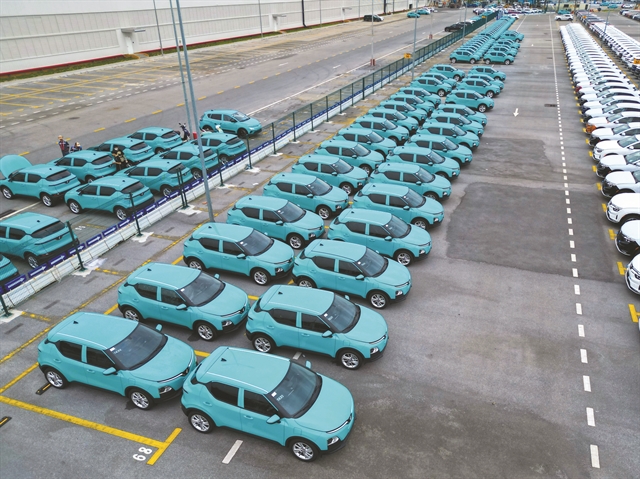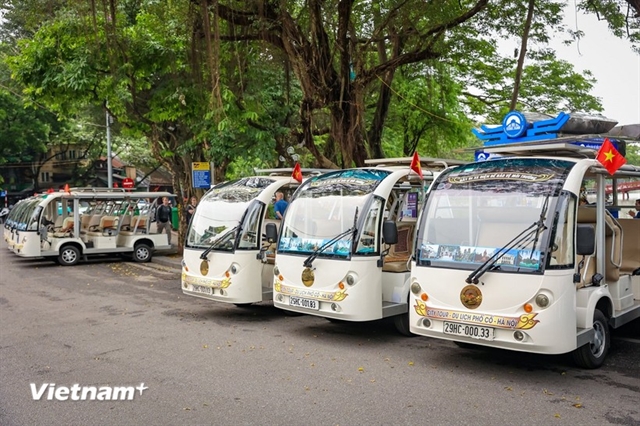 Economy
Economy

 |
| The four-wheel electric vehicles used to transport tourists inside the Old Quarter area of Hà Nội. — VNA/VNS Photo Hoài Nam |
HÀ NỘI — Deputy Prime Minister Trần Hồng Hà on Tuesday chaired a meeting to discuss the results of the pilot operation of four-wheel electric vehicles for transporting tourists in restricted areas.
According to the report submitted to the Government by the Ministry of Transport, these vehicles have been used for this purpose since 2010 in the capital city, and to date, 35 out of 63 localities have received approval from the Prime Minister to pilot the operation of four-wheel vehicles powered by electricity or gasoline engines to serve tourist transportation within restricted areas.
Most localities have implemented the pilot project well and have issued regulations on the scope of operation and managing the number of vehicles registered, reads the report.
The Ministry of Culture, Sports and Tourism, and the Ministry of Public Security, along with local authorities have all assessed that these vehicles are safe, environment friendly, cause little pollution and noise and thanks to its low speed there have been no accidents causing injuries or damages to other vehicles, making a convenient and civilised mode of transport, according to the deputy transport minister Nguyễn Duy Lâm.
However, the transport ministry acknowledges that since these types of vehicles are not yet accounted for in the Road Traffic Law, it is difficult for both Government agencies and businesses to implement procedures such as registration, issuance of licence plates, safety inspections, imposition of taxes and road tolls and collection of road maintenance fees.
Some localities, due to practical tourism needs, have used this model of transportation in their own way, with vehicles lacking the required documents for registration and inspection, and some localities have not managed well the number of vehicles participating in the pilot.
The ministry said it has received requests to allow pilot operations from six additional localities, Vĩnh Long, Phú Thọ, Bình Thuận, Trà Vinh, Quảng Trị, and Hà Nam, and asked the Prime Minister to give the green light to their use until official regulations are established.
Deputy PM Hà said the operation of these vehicles followed green transport trends, urging the transport ministry to coordinate with the public security ministry to specify regulations for four-wheel electric vehicles in the Law on Order and Safety of Road Traffic and the Road Traffic Law, which will be submitted to the National Assembly for reviews.
He also urged the transport authorities to consider more general, future-proof regulations that may cover novel modes of transport such as AI-powered, self-driving or flying vehicles, or ones that use new forms of energy.
The development and issuance of standards for four-wheeled electric vehicles should adhere to the principles of harmony, acknowledgment and recognition based on the origin, assessing the quality of this type of vehicle in developed countries, the Deputy PM said.
Regarding the continuation of the trial, Deputy PM Hà demanded that vehicles must comply with origin and quality standards in line with developed countries as well as with Việt Nam's.
Drivers must have valid driving licences as prescribed, while organisations and units operating, using and managing four-wheeled electric vehicles must be responsible for the real-life scope of operation of this type of vehicle. — VNS




